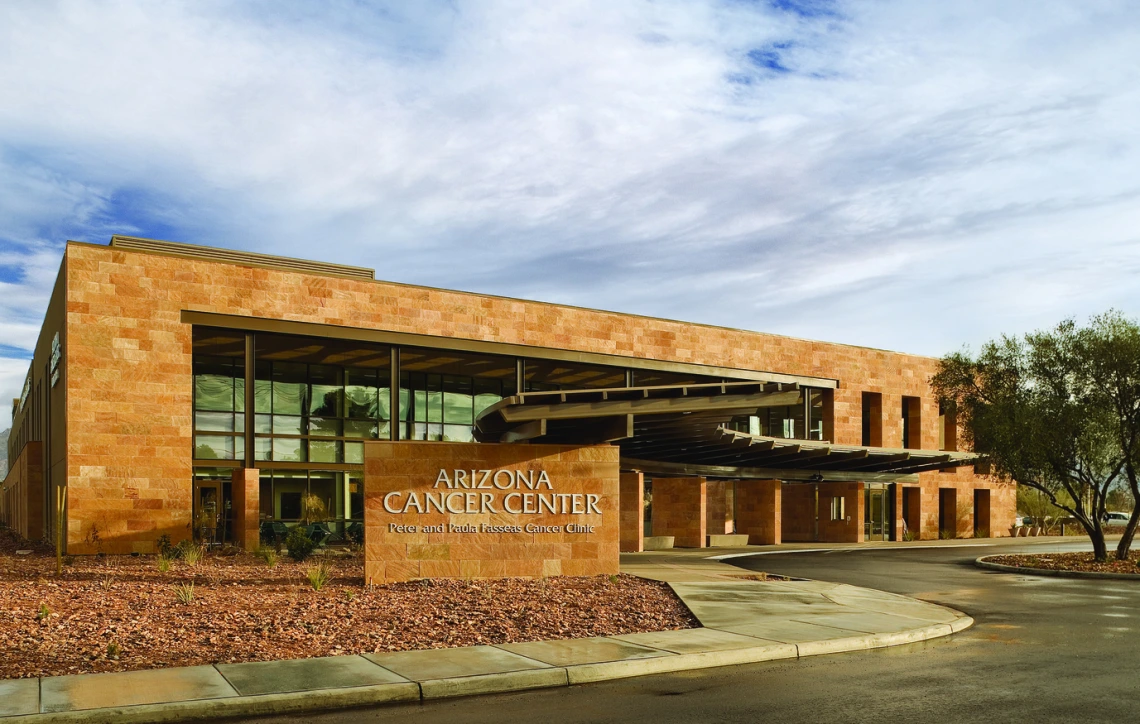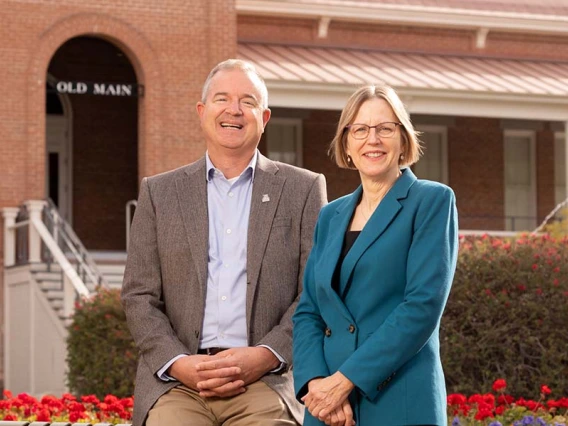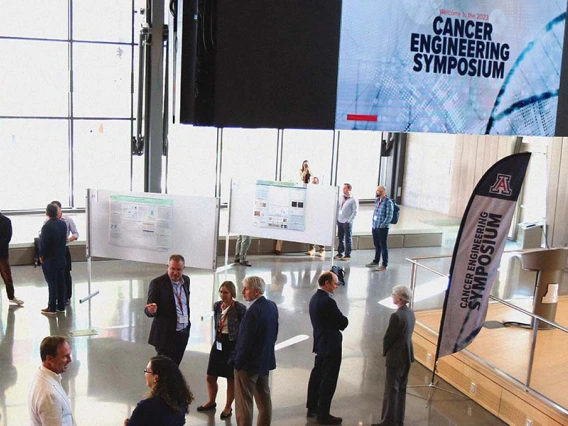Interdisciplinary Faculty Accelerate Solutions to Cancer Diagnoses
The Cancer Engineering Initiative moves ahead with research on new cancer treatment methods that will fight the disease from an individualized medicine perspective.

The University of Arizona Cancer Center is the central meeting point for engineers, biologists and clinicians conducting research with modern tools like 3D printing.
The University of Arizona Cancer Engineering Initiative began in fiscal year 2022-2023 with $10.8 million in funding from the state’s New Economy Initiative. Now, it’s forging ahead with new faculty hires and partnerships – realizing the goal of rapidly pioneering cancer treatments with an engineering mindset.
Biomedical engineering faculty are teaming up with experts in biology and 3D printing to expedite research that will give patients and doctors more answers into the causes of cancer cell growth.
One promising technique at the intersection of these fields is growing cancer cells in materials that mimic human organs, giving researchers a chance to test unique factors that may have led to a patient’s diagnosis.
“Cancer cells are heavily influenced by their environment,” said Shang Song, assistant professor of biomedical engineering and leader of the Song Lab.
Song is an expert in cellular microenvironments, regenerative medicine, and organ-on-chip systems; she’s investigating how body parts – such as brain, breast, prostate, or bone – can stimulate tumor growth.
“Cancer cells can stay dormant when they're not being triggered,” Song said. “I’m asking what nutrients, what physical or chemical cues are in the environment that influence cell behavior.”
Song received the American Cancer Society Institutional Pilot Award and will use the funding to develop gels that mimic a wide range of mechanic stiffness in relation to breast and prostate cancer cells. Both cancers – in their most advanced stages – are known to grow into bone. Song will uncover if varying stiffness similar to different parts of bone, like bone marrow, causes cancer cell growth.
Cancer research is a new venture for Song. She’s emboldened to help a family member who was diagnosed with lung cancer and to find solutions for Arizona’s aging population.
Arizona’s 65 and older age group is the fastest-growing population in the state, increasing by 55% from 2010 to 2022, according to the U.S. Census Bureau. People over 50 have a well-documented higher cancer risk, and Arizonans face elevated rates of skin cancer from sun exposure.
“The Cancer Engineering Initiative is not only a driving force for research and bringing in young faculty, but it's also a response to the critical need of the Arizona people,” Song said.
Teaming Up to Tackle Cancer
Song will expand on microenvironment research with one of those new faculty members: Alexander McGhee, assistant professor of biomedical engineering. He leads the McGhee Lab out of the University of Arizona Cancer Center.
McGhee’s expertise includes 3D bioprinting and in vitro modeling. In vitro models allow researchers to study cellular behavior in a controlled environment, and the models he is developing utilizes 3D-printed bioinks that can mimic human tissue.
“I would like to 3D print human organ models made by stem cells or a patient's biopsy – a chunk of healthy organ – infect it with their cancer and then do drug trials to see what drug combination and dose is most efficacious then finally compare that to the treatment received and patient response,” McGhee said.
This reduces the need for mouse trials – commonly used to test new drug treatments – and “it could also be more biologically relevant to humans.”
Using this technique to test different drugs on a patient’s unique cancer cells supports personalized medicine, using a person’s unique genes or proteins to determine their treatment plan.
Song’s research on microenvironments will mesh well with McGhee’s talents. McGhee said they will collaborate on 3D-printed biosystems to enhance Song’s research models.
Synergy for Patient Success
McGhee has already opened the door to partnerships with top UA Cancer Center researchers like Cindy Miranti, professor of cellular and molecular medicine and chair of the Cancer Biology Graduate Interdisciplinary Program.
She’s been working on prostate cancer research for almost 30 years. Recently, engineers have been her salvation when building organ-on-chip systems that model the prostate, she said.
Organ-on-chips are 3D chips that mimic the activities and mechanics of a human organ. These artificial organs allow researchers to isolate different factors and test how they interact with a patient's cancer cells. In vitro models can be supported with organ-on-chip systems.
When she previously attempted to culture cells on a chip without the help of engineers, “cells would die, we couldn’t maintain them.”
“It’s synergistic,” the BIO5 Institute professor said of working with engineers. “If I don’t have a model that’s going to work, my project is dead in the water, and I can’t move forward.”
Miranti is interested in working with McGhee and Song on the initiative because it brings together three critical disciplines.
Engineers build the models and high-performance microscopes, while researchers like Miranti apply biological principles, and clinicians give both parties access to cancer cells and patient biopsies.
“I don't think our research would move this fast without this initiative,” Song said. “And students are getting advanced training making new biomaterials and analyzing cell-material interaction with state-of-the-art confocal microscopes.”



